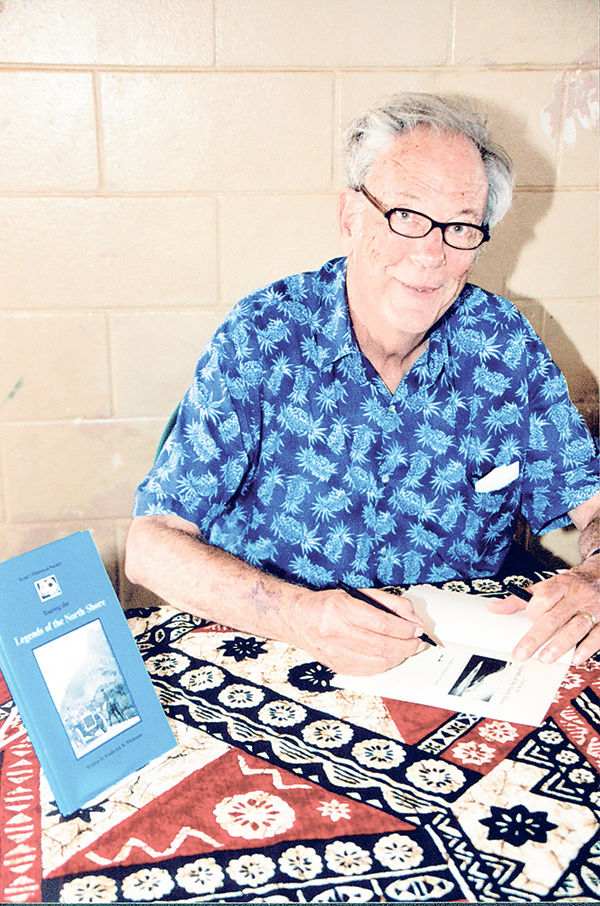LIHUE — For as long as he can remember, Randy Wichman says his father, Frederick Wichman Jr., has been a living and breathing reliquary of Hawaiian history. While he and his siblings were growing up, Randy Wichman said his family
LIHUE — For as long as he can remember, Randy Wichman says his father, Frederick Wichman Jr., has been a living and breathing reliquary of Hawaiian history.
While he and his siblings were growing up, Randy Wichman said his family spoke about Hawaiian culture, language, history and lore over breakfast, lunch and dinner.
“That happened every day and those are moments that we cherish,” Randy Wichman said. “Every meal we learned things from him, and I think, personally, that work was something that drove him to do what he did — he felt that all of it was getting lost and somebody needed to put it back into current circulation. I know that was a lifelong dream of his.”
Frederick “Bruce” Wichman Jr., a retired educator, historian and prolific documentarian of Kauai history, died on Dec. 30 at Wilcox Memorial Hospital in Lihue after a brief illness.
He was 86.
“He wrote about Kauai tales, so essentially, the island has lost one of its greatest historians,” Randy Wichman said. “What he was most known for during the last few years or so of his life was the place names and legends of Kauai.”
Born on June 20, 1928, in Honolulu, Bruce Wichman was a direct descendent of the influential Rice family and began collecting the legends of Kauai from the kupuna in Haena when he was a boy.
Former Kauai County Councilman Jay Furfaro remembers the days when Bruce Wichman would sit down and talk story with members of his wife’s family about place names during his visits to the North Shore.
“He was a man full of knowledge of history on the North Shore. He was a real authority in that regard and was always willing to share his knowledge through his books,” Furfaro said.
Bruce Wichman later taught fifth and sixth grade at Anahola School before making his way to the Big Island, where he worked in schools in Laupahoehoe and Hilo. He later became a teacher at Fort River Elementary School in Amherst, Massachusetts, before retiring in the early 1980s and moving back to Kauai in 1983.
Randy Wichman said his father’s interest in history, dovetailed with his career as a school teacher, created an environment at home that fostered a thirst for learning.
“All of us in the family, by the time we were 5 years old, we were able to recite all of these stories, so he passed it all to us really early,” Randy Wichman said. “He had a great deal of satisfaction as a school teacher, but his life’s work was the legends and he personally got a lot out of it. And for us, that’s one of our cherished memories — this exchange of knowledge that always took place.”
After returning to Kauai nearly three decades ago, Randy Wichman recalled that his father felt dismayed that many of the tales, legends and place names that he learned growing up became lost over time.
“When he moved back, he realized that there were many different names for beaches, like Tunnels Beach, and he hated that — he wondered what happened to the old names,” Wichman said. “He was driven by the fact that all the old names were getting lost.”
He wrote an anthology, “Kauai Tales,” which was published in 1985. His other published works include “Pele Ma: Legends of Pele from Kauai,” “Kauai: Ancient Place Names and Their Stories,” and “Polihale and Other Kauai Legends.”
In 1999, Bruce Wichman was presented with the Kauai Museum’s biannual Living Treasure Award for his literary and historical contributions.
“His legends have been translated into many different languages and some of them have been turned into full theatrical productions,” Randy Wichman said. “You’d be surprised at how many different people are aware of his stories.”
A celebration of life will be announced at a later date.


